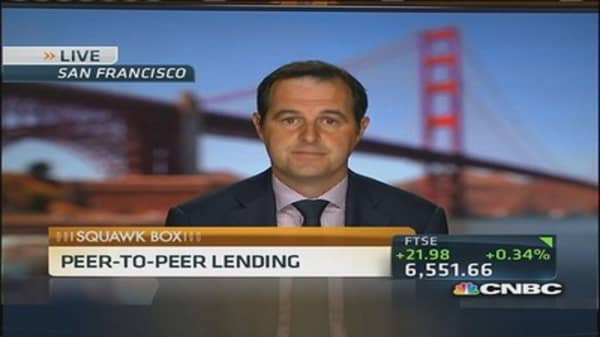A weekly recap of news related to the CNBC Disruptor 50 companies upending the status quo in the markets:
An end to student loan gouging
Vikram Pandit took home only $1 as CEO of Citigroup post-financial crisis, but he still has enough wealth to be among a group of investors in a $100 million round for CommonBond, an online provider of student loans.
Traditional banks and loan providers are being challenged by peer-to-peer lenders including Lending Club in the general debt marketplace. CommonBond and another student loan finance site, Social Finance, aim to create the same competitive challenge in the student lending market.
The companies claim they will provide cheaper rates to students taking out loans than private lenders and the government, and individuals will be able to serve as lenders and investors.
The companies' approach is to raise money from alumni of each university, and those individual lenders become investors able to receive 4 to 7 percent annual returns. Commonbond plans to offer loans to 1,500 borrowers this year across 20 business schools; Social Finance has said it will originate as much as $1 billion in student loans across students at 100 schools.
Tribeca Venture Partners and Social + Capital Partnership led the financing. CommonBond CEO David Klein told Businessweek, "Financial institutions, which are supposed to appropriately price risk, are charging outlandishly high rates to credit-worthy borrowers."
(Read more: 11 ways your daily routine will change)





